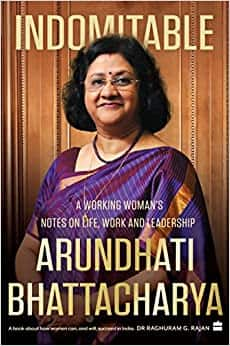



 Once we finished handling all the formalities of my father’s passing, I returned to Kolkata and immersed myself in work. The Commercial branch handled large corporate credit, and the person I was taking over from handled one of the largest portfolios in the branch. He was also the undoubted favourite of the head of the branch. This was with good reason. I have myself rarely seen a more competent and well-meaning officer. I was to handle large credit for the first time and I was quite apprehensive. But Arijit Sanyal, my predecessor, took me through every step patiently, instructing me on the finer nuances of credit appraisal as we went through the files of each account. In all my years of a dozen or more assignments, nobody has done a more thorough job of handing over charge.
Once we finished handling all the formalities of my father’s passing, I returned to Kolkata and immersed myself in work. The Commercial branch handled large corporate credit, and the person I was taking over from handled one of the largest portfolios in the branch. He was also the undoubted favourite of the head of the branch. This was with good reason. I have myself rarely seen a more competent and well-meaning officer. I was to handle large credit for the first time and I was quite apprehensive. But Arijit Sanyal, my predecessor, took me through every step patiently, instructing me on the finer nuances of credit appraisal as we went through the files of each account. In all my years of a dozen or more assignments, nobody has done a more thorough job of handing over charge.
In time, I took over completely. The head of the branch, however, had still not warmed up to me. He could barely handle the loss of his favourite officer, and then to find out that a woman was replacing the man he valued so much was the unkindest cut of all. Whenever I went to his room, I was never invited to sit down. I was told that he allowed only the people he approved of to sit in his presence.
Shortly after I joined this branch, the bank launched its maiden Global Depository Receipt (GDR) issue. Our branch was given a target for the amount of investments we needed to garner. One of my accounts was that of the largest miner in India. While their corporate headquarters was in Kolkata, their Provident Fund Trust, which was a large investor, had its office in the neighbouring state. I took the help of my relationship with the corporate to visit their PF office and seek their investment in our issue. After three days of hard work, I managed to convince their investment committee and returned to my branch with a cheque that was big enough to cover not only the branch’s target but also that of the circle. However, at this point, our neighbouring circle woke up and complained to our chief general manager (CGM) that the Bengal circle had taken what was rightfully theirs. The CGM, who knew me well from my Kharagpur days (as local board meetings of the circle were sometimes held at the IIT there), told the head of my branch to resolve the issue. My boss called me to his room and, for the first time ever, asked me to take a seat. Thereafter, I never faced any issue with him and he was most supportive of all my initiatives. On the GDR issue, I refused to back off. Ultimately, my bosses decided to share the amount 50:50 between the circles, but I had proved my abilities and my reputation as someone who could be relied on to deliver got a great boost.
My interactions with the large corporate customers showed me a world of finance very different from the one I had handled till then. Decisions needed to be taken for exposures in crores of rupees and the amount of diligence required was commensurately large. A good practice I saw at that branch was it had a dedicated team for inspection and another for documentation. It helped in creating expertise in areas which were otherwise not well understood, but which had a great bearing on the health of the account and protection of lenders. I also met some great leaders who went on to head large companies, and the business practices of a calibrated approach to risk that I saw them follow provided great learning opportunities for me.
The challenge of balancing work and home had become greater by now. I would catch the Coromandel Express on Saturday evenings to go to Kharagpur. It would take about three hours if there were no disruptions, which, unfortunately, happened frequently. Once when the overhead wires snapped, I got to Kharagpur at 2.30 a.m. Pritimoy invariably picked me up from the station. That day, he was not on the platform. On exiting the station, I saw our car parked at the very end and discovered my husband fast asleep at the wheel. He had been mistaken for a taxi driver for half the night, and, as each train came in, he had his work cut out refusing passengers wanting to hire the vehicle. He was unable to see what I found so funny in the situation.
Excerpted from Indomitable: A Working Woman's Notes on Work, Life and Leadership by Arundhati Bhattacharya with permission from Harper Business.Discover the latest Business News, Sensex, and Nifty updates. Obtain Personal Finance insights, tax queries, and expert opinions on Moneycontrol or download the Moneycontrol App to stay updated!
Find the best of Al News in one place, specially curated for you every weekend.
Stay on top of the latest tech trends and biggest startup news.